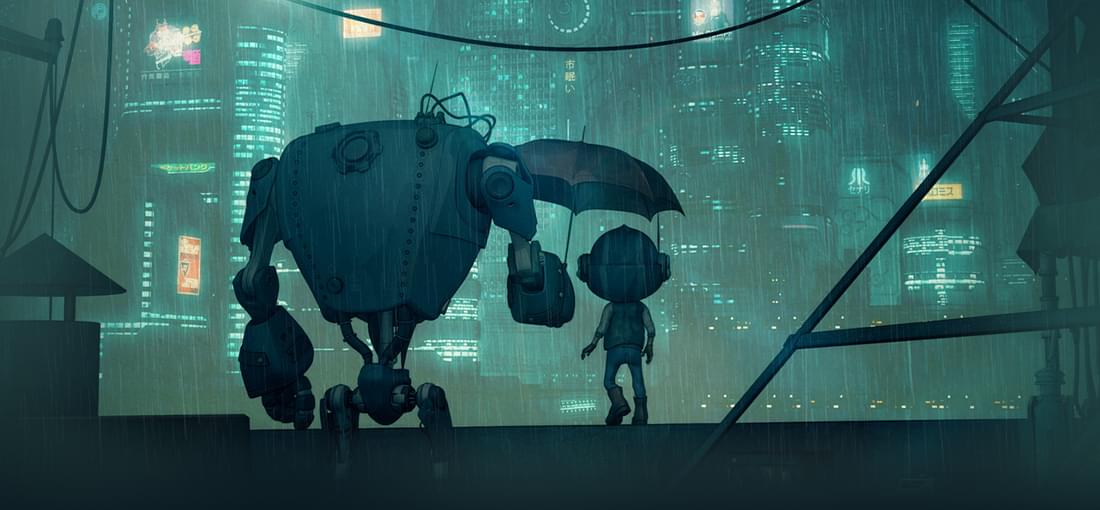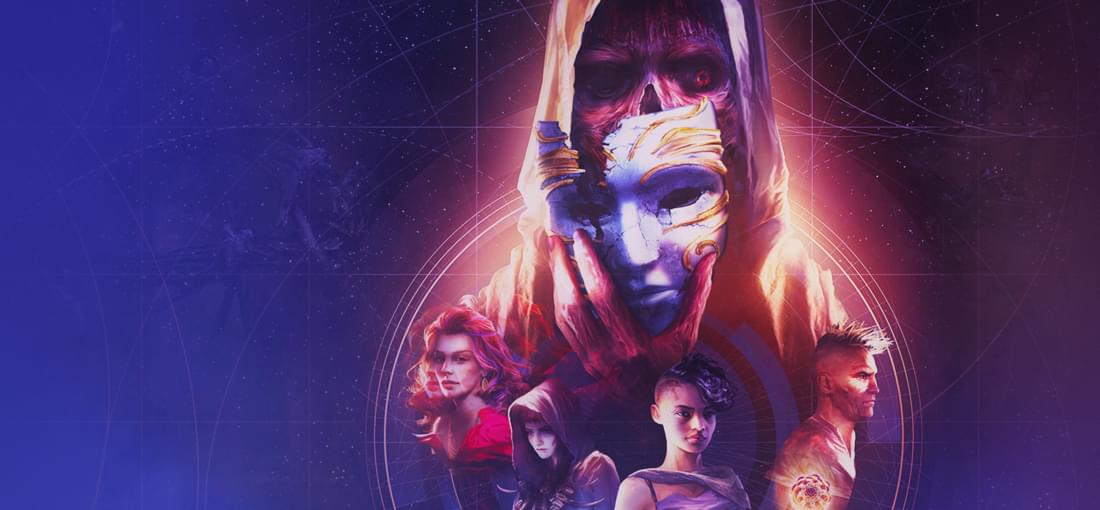


I wish I could say Encodya was great. It's pretty decent, enough for me to play through its entirety, but it has messy puzzles, terrible inventory management, and an unfocused narrative. The main characters are not distinct enough to be worth switching perspectives (often, if you look at something with Tina, SAM will offer - if not the same - very similar banter); the characters you encounter across the world are boxy and cartoonish in a bad way. It's clearly attempting to imitate the characterization and humor of Lucasarts games, but the Encodya team unfortunately do not have the writing chops to pull it off - I think I chuckled once throughout the entire game. The narrative is dispersed, with puzzles that solely feel like fetch quests, and whose thematic connections are loose at best, nonsensical at worst. Some of them vaguely make sense between each other, but for the most part, while simple enough, sometimes do fall into the infamous "adventure game puzzle logic", particularly in the last 2 or so parts of the game. Which leads me to the world-building: it's barebones, with a Berlin that feels like it could be anywhere in a cyberpunk setting - if you'd called it Neo Paris or Neo Chicago it would've mattered little. The game promises a grand "save the world" narrative and questions about public and private social engineering, and it flatly delivers on it, to the most boring results. There's no food for thought here, just a bunch of platitudes about the effects of the internet. Yes, if only we thought of trees every once in a while, the world would be different. I guess. Mechanically, it's also a mess. There's no "always run option" and the characters move very slowly; the 3D/2D geometry makes perspective tricky to navigate; the camera is positioned very badly a lot of times (SAM blocks stuff from view often); inventory is terrible; some scenes have nothing in them. Again, I wish I could say this was better. Hopefully next time!
There's a Stephen King reference at some point during the game, which helps explain the serious attempt at making a slasher horror game with a deep topic. Playing it in 2022 left me with positive, yet mixed feelings about it: it has not aged well, both technically and in terms of writing, and yet it is charming, sometimes even powerful. I'm not sure the theme was bound to work anyway - depression and slasher aesthetics are kind of opposites in many ways, and the slow-burn horror of the earlier only very clumsily fits into the extreme, gory and exaggerated horror of the latter. The best part of this game is arguably a conversation between the two main characters about their pasts, which goes to show you how the fit doesn't work; horror here is not really a device for thinking, but a device to shock. Slasher aesthetics win out overall, pushing whatever meaningful message the game has about depression to a weird, uneven place that barely makes sense as the story moves through scenes set up around clichéd slasher killers. They're cannibals, torturers, senseless killers - barely human figures that, against the full humanity of the protagonists, seem vacuous and silly. These clichés are really showing their age now (particularly at the game's end). It is in this extreme where the message is muddled - depression is an illness, yes, but the mental illnesses of the antagonists are portrayed stereotypically (they're slashers, after all), stripping them of all possible humanity, and that just doesn't really work as a constructive comment on mental health at all. And yet, there are moments of brilliance here, which is why I give it 4 stars. The dialogues between protagonists are great, as is the dialogue between the main protagonist and the supernatural being she's tied to. The limbo/hell sequences are surreal enough, and show you parts of the protagonist she doesn't show herself. That's good, but still, don't go into this game expecting something truly meaningful.

Sounds familiar? That's because what made PS:T amazing was definitely not the combat system, and in that sense this game truly is a 'spiritual sequel'. The story is extremely well written, and at certain points shines quite brilliantly in ways that PS:T also did. However, the weak spot that does difference it from PS:T is the companions. A couple of them are refreshingly interesting, but they mostly pale in compasion to PS:T's or even Pillars of Eternity's (and there were some bland companions there). The intricate, intimate stories of grief and love that make PS:T's companions so alluring gives way here to a few characterizations that never really connect with the player as strongly - there's really no big loss if you miss their stories for the most part. That said, the world-building is first-class, not in a sophisticated videogamey 'environmental storytelling' manner but in a much more traditional, text-and-image-based form. Every detail to be examined builds upon what you are looking at, and just like in PS:T the rather brilliant alien visual designs team up very well with descriptions to give your imagination a platform for sheer speculation. To me, this is what made PS:T such a pleasure to explore, and Numenera does it justice. It also experiments with literary ideas that PS:T didn't, like an entire environment that is also a character (and perhaps one of the most interesting and engaging in cRPGs), and it does so with such commitment that there's at least a few quite rewarding incidental characters in every scene. In a way, such a lavish attention to detail did sometimes compensate for the lackluster companions. Sometimes. Just as a final remark: if you loved PS:T but do not really mind not getting PS:T 2 (people who attached that expectation to this project haven't enjoyed Numenera at all, but not so much because of what it is, but because of what it isn't), get this game! Take your time, enjoy the massive readings, and let your imagination fly.